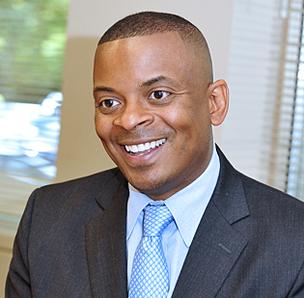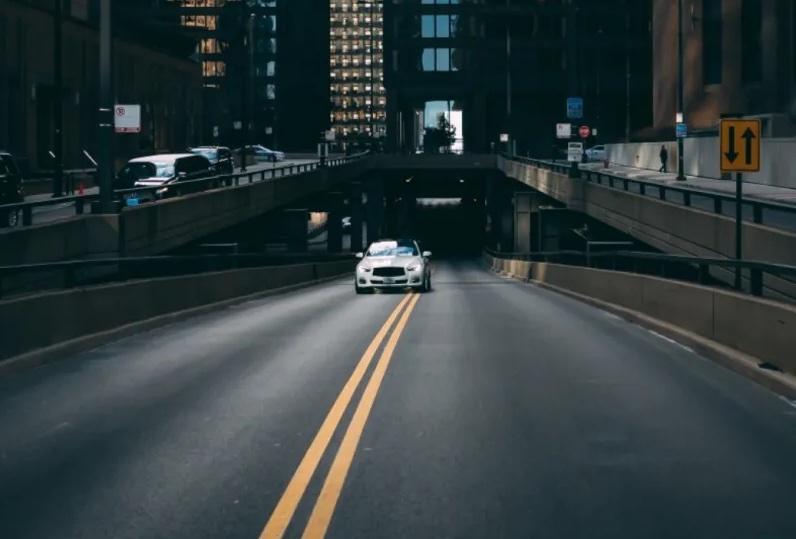Are we really on the right road?
Transportation leaders believe President Biden’s $2-trillion infrastructure bill will finally get states to stop splurging federal dollars on freeway projects and emissions-enabling concrete superstructures that carve up cities while wasting local taxpayer dollars on their upkeep.
But there's much more needed: Some officials and advocates have even suggested Congress consider adding a permanent operating support for transit systems, federalizing transportation projects that occur between two states, and creating a national planner to coordinate all infrastructure and development projects across the country.

“I want a Tony Fauci of planning in this country with a 10-year term who can be a truth teller and a resource to policy makers throughout the country,” Anthony Foxx, former U.S. transportation secretary under President Obama, said at a virtual panel “Undoing the Damage of Urban Freeways” Transportation For America co-hosted with Third Way last week.
Congressional leaders, who will ultimately shape the contours of the White House’s American Jobs Plan, have additional priorities.
Georgia Rep. Nikema Williams, a member of the House Transportation and Infrastructure Committee, says her colleagues must take into consideration the needs of communities near highways. She wants to see new investments in the redesign and reconstruction of freeways in urban areas, competitive grant programs for minority- and women-owned businesses, additional funding for technical assistance to help community-based projects get ahead, and land trusts to help people retain their wealth.
“We have to have programs that will address inequities,” Williams said. “We should look at ways to make highways more environmentally friendly either by being removed or repurposed to benefit surrounding neighborhoods. Areas around highways are prime locations for repurposing.”
Tearing down freeways isn’t easy. Just ask Syracuse Mayor Ben Walsh who has been working with New York State transportation officials to remove a section of Interstate 81, which he has called the “poster child of the failed polices of the past century.” The state is expected to release its environmental impact statement soon, and Walsh anticipates “shovels in the ground” in 12 to 24 months.
Walsh wants the Biden plan to include pedestrian and bike projects, bus rapid transit, and workforce development expenditures to improve the quality of life of those living in the shadow of the elevated highway.
“We should be looking at all modes of transportation make sure it’s truly equitable and accessible,” Walsh said. “If we’re not intentional about what we do with that investment we could very well end up with similar results and the same community being hurt.”
In order to avoid future boondoggles, Congress must add guardrails to ensure that taxpayers aren’t on the hook for wasteful projects for generations, advocates say.
“We’ve been building out things we can’t afford to maintain and that’s why we have such a backlog of repairs,” said Beth Osborne, the executive director of Transportation for America. “We need to make sure we build something at the surface level that’s much more human-centered and not build more community-damaging highways that we’ll have to go back and fix in the future.”
The size of the Biden administration’s infrastructure package is as ambitious as its goals to reroute discriminatory systems and funding practices that have become commonplace in Washington for decades.
Transportation Secretary Pete Buttigieg said racism is “physically built into some of our highways” and pointed to the construction of low overpasses in American cities in an interview with The Grio earlier this month. He described his agency’s $25.6-billion discretionary budget as “a beginning on investments” that will dismantle structural racism and racist structures, at a House Appropriations Committee hearing in April.
Democrats want the multi-trillion measure to include a broad array of priorities beyond highways including electric vehicle charging stations, new rail lines, and at-home health care. Republicans prefer a paired-down bill costing under $800 billion that focuses on traditional notions of infrastructure such as roads and bridges.
But some of the most monumental decisions lawmakers make involve removing infrastructure projects that have made neighborhoods unhealthier and more segregated while costing billions of dollars to maintain.
One early sign the Biden administration is changing direction was when the Federal Highway Administration asked the Texas Department of Transportation to stop reviewing contracts to widen Interstate 45 in Houston citing civil rights and environmental justice concerns. The $7 billion project would have displaced 1,000 homes, forced the closure of business and shops, and paved over parkland, according to Harris County officials who filed a lawsuit to halt the expansion plan.
Advocates called the highway expansion “racist and classist” whose enormous effects would have been felt for decades.
“People who paid their home off and want to pass generational wealth to their daughter won't be able to do that,” Stop TxDOT I-45 organizer Molly Cook said. “State DOTs are set up so powerfully are almost extra political so we are counting on federal government to put action behind their words.”
The Biden administration is also proposing to grow its transportation department’s discretionary budget by $3.2 billion, or 14 percent more than the previous year, an early step that could show transportation advocates which types of projects are valued.
“The administration is jumping into this conversation early and we haven’t always had that happen,” Foxx said. “It shows a level of seriousness and purpose. I think something big will get done here it’s just a question of timing in my opinion.”
Editor's note: After initial publication of this story, we were informed that former U.S. DOT Secretary Anthony Foxx is also chief policy officer and adviser to the co-founders of Lyft, the app-based taxi company and bike-share operator. We should have pointed out Foxx's possible conflict of interest before publication. Streetsblog regrets the oversight.






